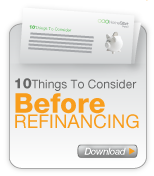 Tax filing blunders cause otherwise credit worthy borrowers to effectively disqualify themselves. In part 1 of this series we discussed how unreimbursed expenses and not declaring profit on self-employment can limit your borrowing capacity. Here we will go over blunders that if you commit them you could outright eliminate any possibility of qualifying for that next mortgage.
Tax filing blunders cause otherwise credit worthy borrowers to effectively disqualify themselves. In part 1 of this series we discussed how unreimbursed expenses and not declaring profit on self-employment can limit your borrowing capacity. Here we will go over blunders that if you commit them you could outright eliminate any possibility of qualifying for that next mortgage.
Losses on rental properties
Over the past few years you have built a real estate portfolio that would make Donald Trump jealous, you purchased the homes cheap a few years back with “light”, or “No doc loans” and the properties are more than paying for themselves every month. Now you want to purchase that next investment / primary home or refinance the homes to squeeze out that extra profit. Your credit is perfect to boot. Just one problem, you are declaring losses on your rental properties. Seems odd that would be case but believe it or not I as a mortgage broker in Houston have come to realize that it is very common to see people’s rental portfolio declare losses. So why does it matter? You can produce a lease contract for the property where the renter pays you $1,350 per month and you can prove the mortgage only costs you $1,150, therefore you’re making $200 per month, right? Well, not if your taxes say otherwise. If you own rental property an underwriter will refer to your Schedule E on your tax returns and if you are declaring a loss, instead of the property “making you money” the underwriter is going to consider the home “costing you money”. Therefore instead of an asset, it turns into a liability. It’s basically considered another bill. Common reasons why rental properties show losses on tax filigns are over accounting for cleaning and maintenance fees, repairs, supplies, and/or monthly management fees to real estate agents or contractors. But the biggest reason is under reporting of rent (think that cash renter). Do not get caught making this mistake. Keep in mind, today’s new underwriting standards will require a 2yr look back period on your rental property profitability. So start now if you need to build a 2yr positive history.
Going from W2 to Self-employed
A couple of months ago you decided to stop working for the man. You saw an opportunity. You took it and were rewarded. No more commuting to the office, no more answering to the boss, you are now a proud contractor/business owner. You’re making more money as result. You established a DBA (doing business as)/LLC with the city/state and have the necessary licenses if any apply. Life is good. But guess what, you just disqualified yourself for a mortgage. How can that be? In order for ANY of your income to be considered, today’s new underwriting standards require that you have at least 2yrs (is that 2yr requirement sounding familiar yet) of documentable self-employed income. On occassion some underwriters will allow for leeway in the 2yr requirement but that is a tough exception to obtain. You may be wondering since you no longer get a steady paycheck what is documentable self-employed income? The simple answer is it's the profit not gross sales you report on your taxes. Unfortunately, taxes are only filed once a year and underwriters are going to be looking for two Schedule Cs within your tax returns. Therefore even after your second tax filing you may have only been self-employed 1.5yrs (i.e. – you stop working for a company mid-year and strike out on your own in July). It doesn’t seem fair, does it? Especially considering that you only have to be employed one-month as a W2 employee for your FULL income to be used in qualifying for a mortgage. But recent changes in underwriting standards have overlaid a large risk factor on you striking out on your own and therefore require a 2yr history to prove your ability to produce income as your own boss. Don't have 2yrs of self-employment under your belt yet? Most likely the underwriter will disqualify all of your self-employment income. But not all hope is lost. My best advice here, with years of experience as a Houston mortgage broker is to get that mortgage in place before you dump your old gig and strike out on your own. However, if you have already made the move there are non-conforming loans available with larger down payments for which you may qualify.
Other common blunders to be discussed in follow-up articles:
1. Unreimbursed employee expenses (part 1)
2. Not declaring profit on self-employment income (part 1)
3. Not declaring rental properties
4. Owning more than 25% of a partnership /LLC for which you are an employee
5. Retiring without declaring IRA distributions / Pensions / annuities
6. Expensing a car loan as a business expense could hurt you twice
7. Meals / entertainment expense really counts twice
8. Under-declaring income for service jobs (waiter)









